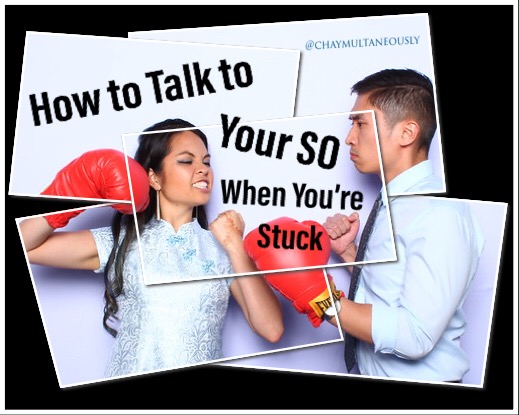Imago Theory: Why They Drive You Crazy
We were given a worksheet with three pages, carefully instructed not to flip to the end, and to fill out each page thoughtfully, one at a time, as though we were a client. We were warned that if we used this technique with clients that we would need to prepare thoroughly and that they needed to be in a stable mental and emotional state to fill it out. They would need a lot of support when they finished.
Thinking we were emotionally as strong as oxen and so self-aware we could never be surprised, we raised our skeptical brows as we filled out the boxes. When we were done with the last page, my best friend and I were both staring blankly, dumbfounded at how three pages had tricked us, not only into spelling out our deepest darkest secrets, but also informing us how they were sabotaging our path to happiness.
But, never fear, I'll give you the basics of Imago Theory to start.
Imago Relationship Theory
This is a theory released by Dr. Hendrix (yes, really) in a book called Getting the Love You Want. It comes to two points:
- When we develop as children, we gain certain values from our parents or caregivers, some of which fulfill our needs and some of which do not.
- Romantic interest draws us maniacally toward people whose emotional vulnerabilities match with ours, so we can revisit what we didn't get in our childhood.
In other words, our image of our caretakers, created when we were young, informs us how we want to gain love and fulfillment in our adult life--and we recreate it with the person we love as an adult.
Super Basic Example That Definitely Has More Layers to It:
Teddy's mom was meek and passive and his dad was critical of him. Teddy craves strong direction, but also understanding and autonomy. He falls for Dolores, who gives him purpose with her worldview and seems to understand him more deeply than just the surface and gives him independence. #WestworldHBO #OrDoesShe #IKnowTeddyDoesntHaveRealParentsOK
 |
| Oh the happy days of innocence and Season 1.. |
Dolores's dad was steady and stable; he also had an overwhelming anxiety. Dolores, in order to control the anxiety her dad had for the world, is drawn to someone dedicated to her side and gives her the ability to address these issues in her own special way. #WestworldComeBackIMissYou
So what do I do with this information...
In short, without the trained therapist and worksheet, you can't do the heavy lifting.. but I think you can start by laying some foundation.
1) How did I respond when I was a kid to things that frustrated me?
This informs you of your baseline or "default" way of solving problems when you're an adult.
Your answers apply to different phases in your development; based on Erikson's and Mahler's models, Imago focuses on: Attachment (birth-2yo), Exploration (~2-3yo), Identity (~3-4yo), Power & Competence (~4-6yo), and Concern/Socialization (~6-9yo).
 |
| yup the cutest passive manipulator you've ever seen |
Any skills I learned after, I lay them on top of this baseline, and I default to this way of thinking when I'm feeling down on myself, stressed, frustrated, or worthless.
2) How does this work with your significant other (SO) or people you date or even friends?
Think of your relationships and how they react when you use your default. If they were an emotional "match" for you, their vulnerabilities hit your needs and vice versa. And they make you crazy!
To continue my personal example, little Chay grew into slightly-larger-but-still-not-big-Chay, and I got into a rough set of years where my power/competence was constantly challenged and I felt down on myself more often than not--and I fell in love with the opposite of passive/manipulator -- the competitor. He was driven toward a career which constantly promoted him, and he gave me advice and guidance, which was very helpful at first. And after about a year or so, I felt very pale in comparison to his accomplishments, even though I was well on my way to my own goals and joys in my work and personal development. It drove us both crazy, and had we learned to communicate through the Imago Dialogue, we might have broken up under fairer weather.
 |
| oh well |
Okay. So you think about that for awhile.. on the next episode, we can learn some dialogue tips. If you want the Imago worksheet to blow your mind and shit your pants, you'll have to ask me personally, and I'll be happy to guide you. :) See ya next time folks!





Comments
Post a Comment